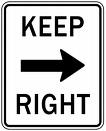To me, conservatism is about believing in the principles on which this country was founded. Those principles are grounded, not in the unlimited powers of government to regulate every aspect of our lives, but in our inalienable rights to life, liberty, and the pursuit of happiness. Everyone understands what’s meant by life and liberty, but the pursuit of happiness clause is not always clear to people. The government doesn’t guarantee anybody’s happiness. But what it does guarantee is that each of us has the right to pursue whatever happiness may mean to us, as individuals, in whatever way we see fit, as long as it doesn’t infringe on the rights of anybody else. That’s a powerful concept.
What makes this country unique among all nations is the fact that our founding fathers believed so strongly in individualism that they placed the rights of the individual above the rights of the collective society, or the “common good.” From its inception, this country was founded on the precepts of individual freedom and individual responsibility. As an American, you have the freedom to live your life however you choose to live it. But the corollary of that freedom is that you also have to take responsibility for your life, and the choices you make, and the consequences of those choices.
It’s not the role of the government to protect you from yourself, or from your own bad choices, poor judgment, or ignorance. That’s up to you. It’s also not up to the government to provide you with basic necessities, like food, shelter, medical care, employment, recreation, or anything else, save the protection of your individual rights. All those are your responsibility to provide for yourself and your dependents. But, by the same token, neither does the government have the right to take away what is yours to provide those things for others.
The concept of private property is fundamental to the realization of individual freedom. What you earn by the fruits of your labor, your mind, your creativity, talents, and the skills you’ve worked to develop, belongs to you and you alone. You may choose to share what’s yours with whomever you want, but that, too, is up to you. It’s not up to the government to take what you earn and redistribute it to those who can’t, or won’t, or don’t earn.
Our founding fathers recognized that, to maximize individual freedom, you have to limit the powers of government. The only truly legitimate role of the government is to protect your rights from being infringed upon by others. Quite simply, the purpose of government is to protect me from you, and you from me, and both of us from a common enemy. Locally, that means law enforcement and criminal justice. Nationally, that means a strong military. I support both.
I’m not against all taxation. I recognize that you don’t get something for nothing. The protection of my rights as a citizen, and our national sovereignty, is worth a lot to me. And I’m willing to pay for that. But I’m not willing to pay for everything else anybody wants that they can’t afford to pay for themselves. If you want something of value, you have to provide value in return. Just because you can’t afford something, doesn’t give you the right to take it out of my pocket. Nobody owes you anything, except what you earn.
The other fundamental building block of a free society is the free market. Some people confuse the phrase “free market” with “big business.” Those two concepts are orthogonal. A free market simply means that every transaction is entered into by the free will of the participants, with no coercion. A free market transaction is always win-win because, if either party doesn’t believe he’s getting more value than what he’s exchanging for it, he can walk away from the transaction. When the government imposes subsidies, tariffs, price controls, quotas, or other regulatory constraints upon the free market, it only serves to circumvent the free will of the people to choose how best to spend the money we earn, under the premise that the government knows what’s best for us better than we do.
The basic building blocks of freedom are free will, free markets, private property, and limited government. And that’s what conservatism in America is about.









